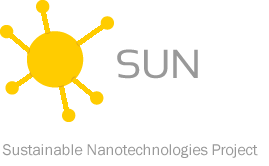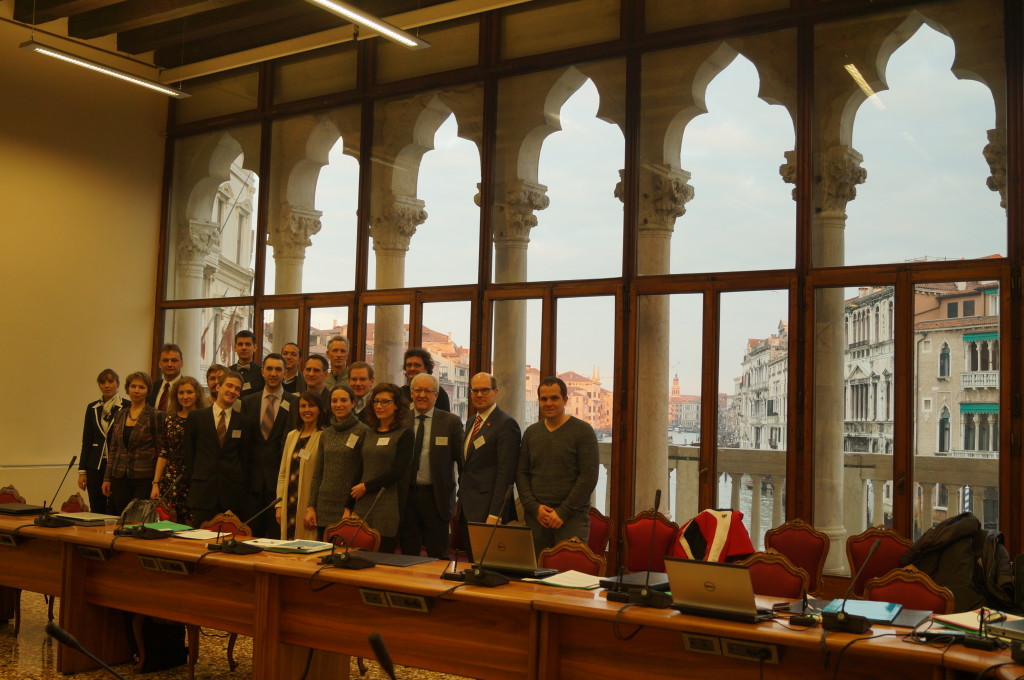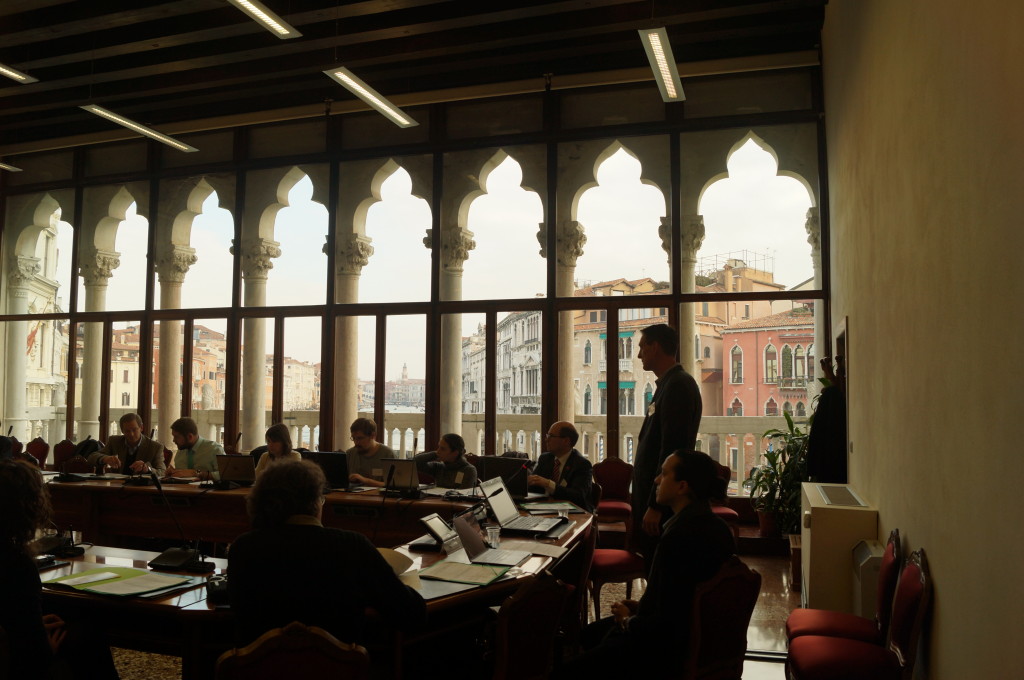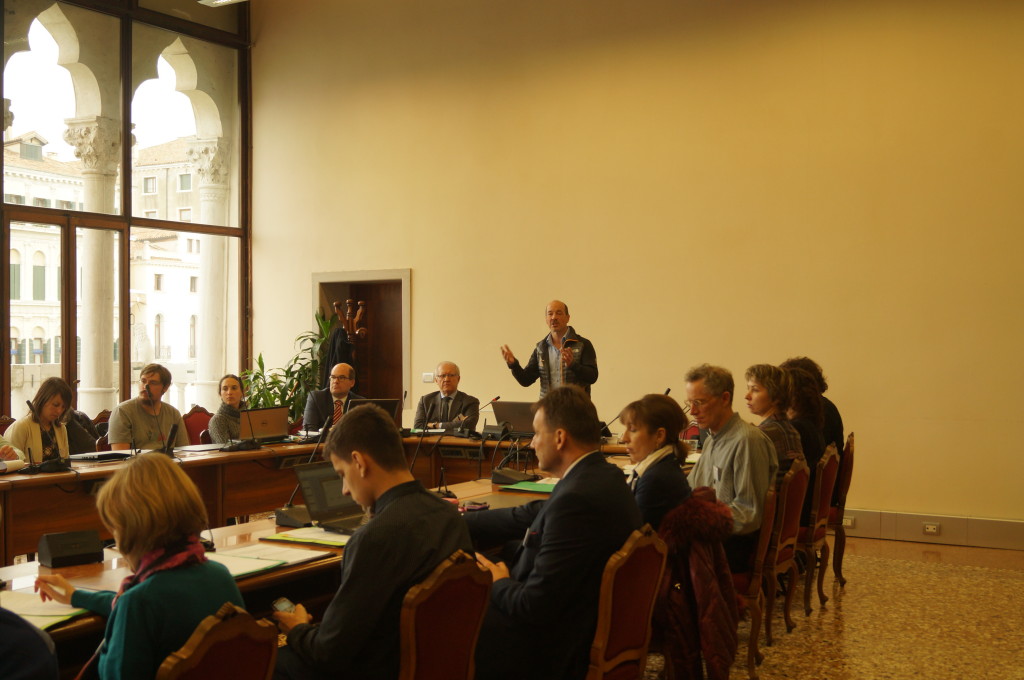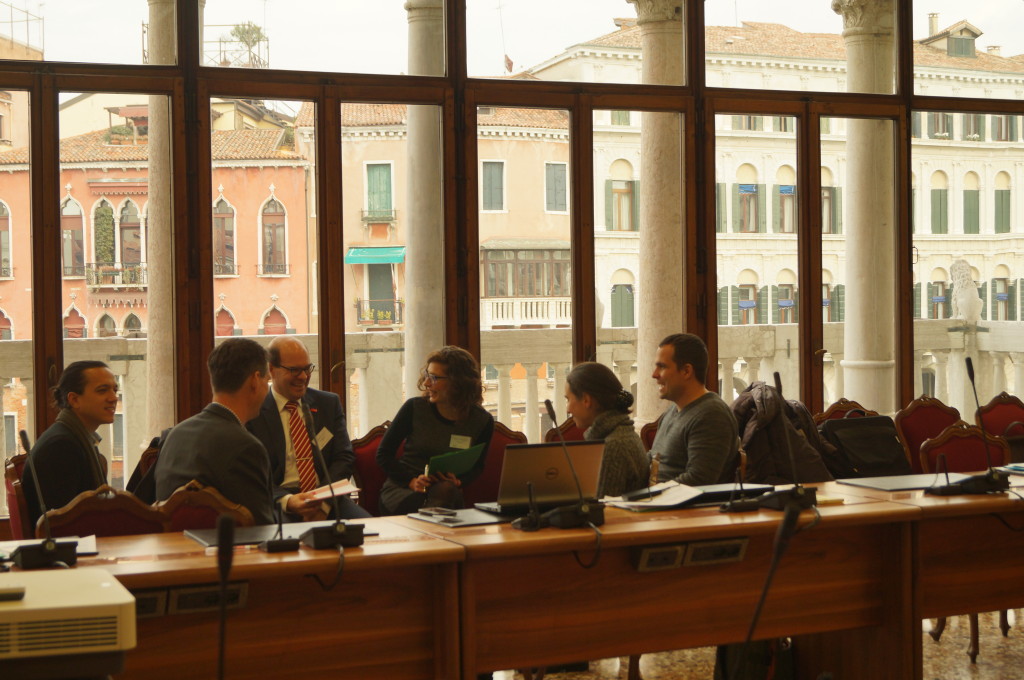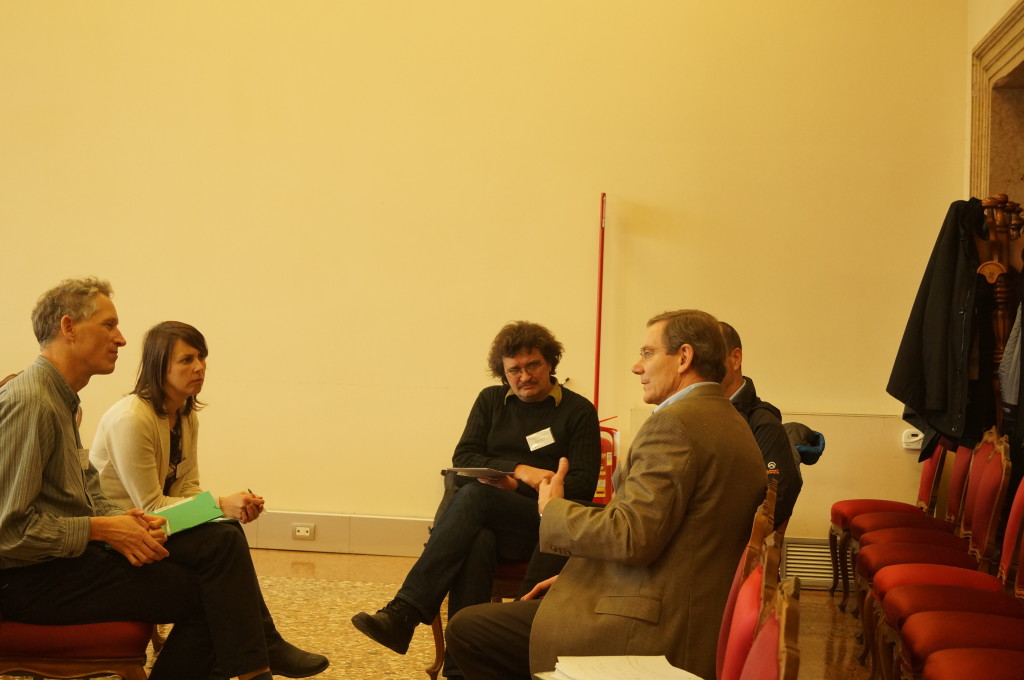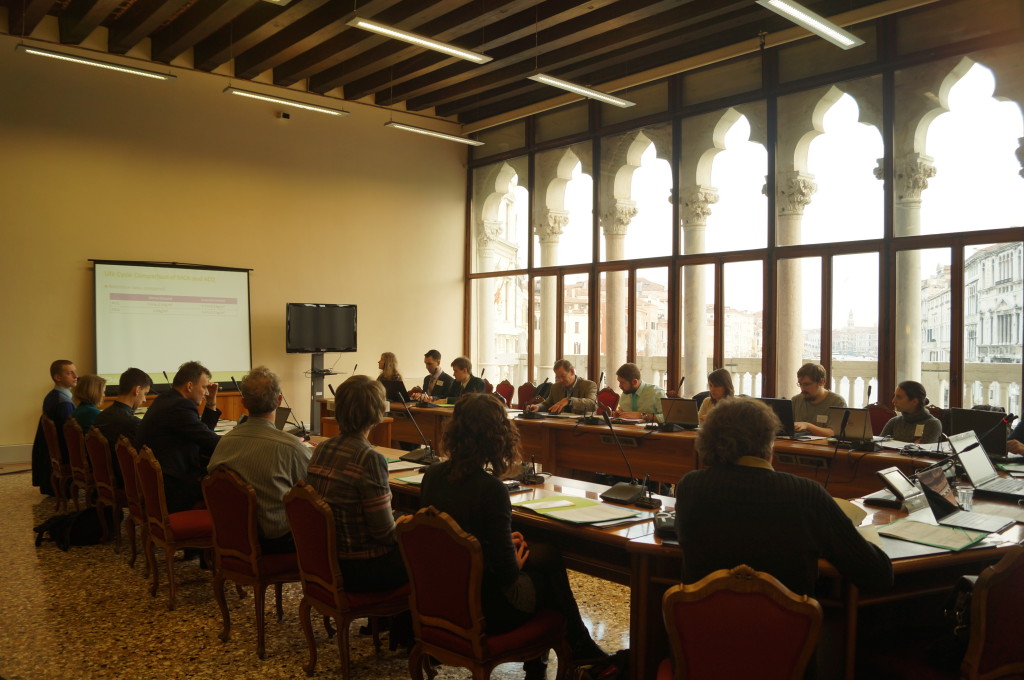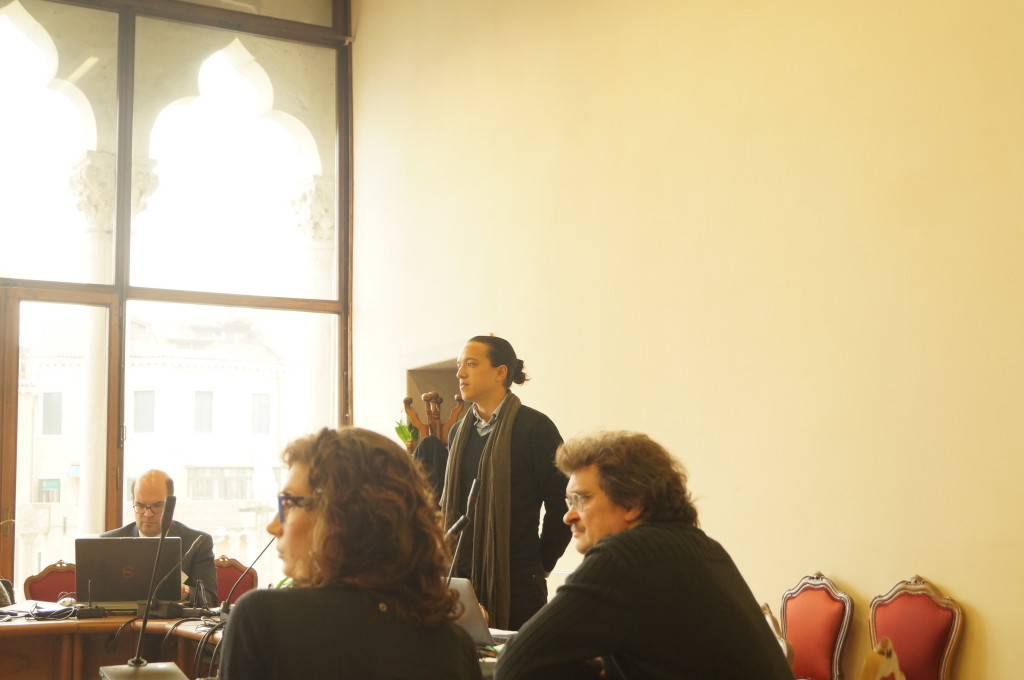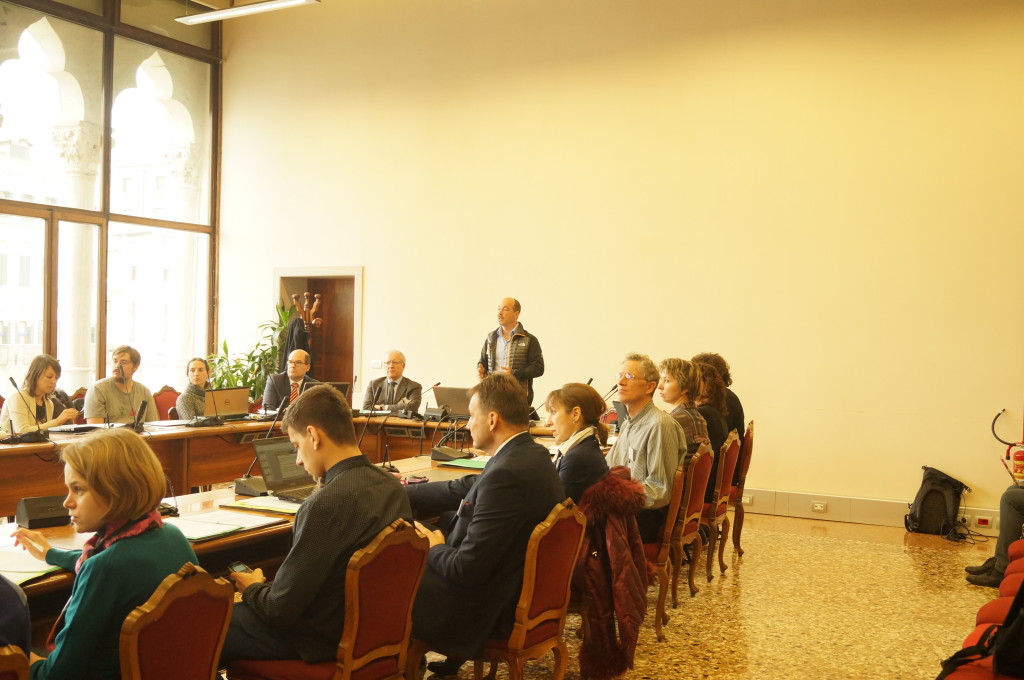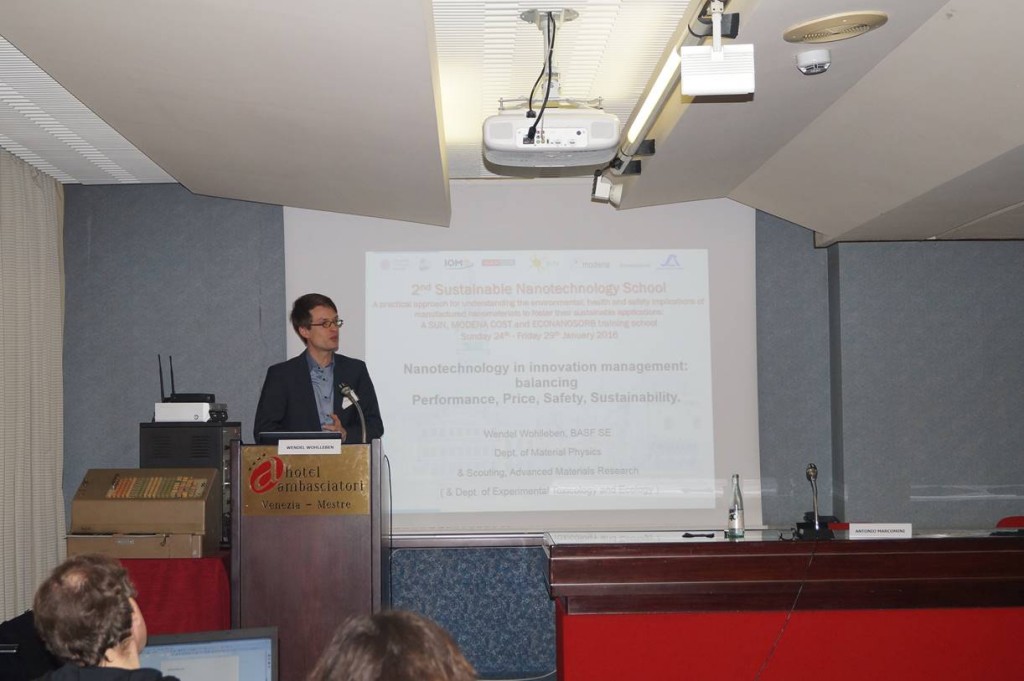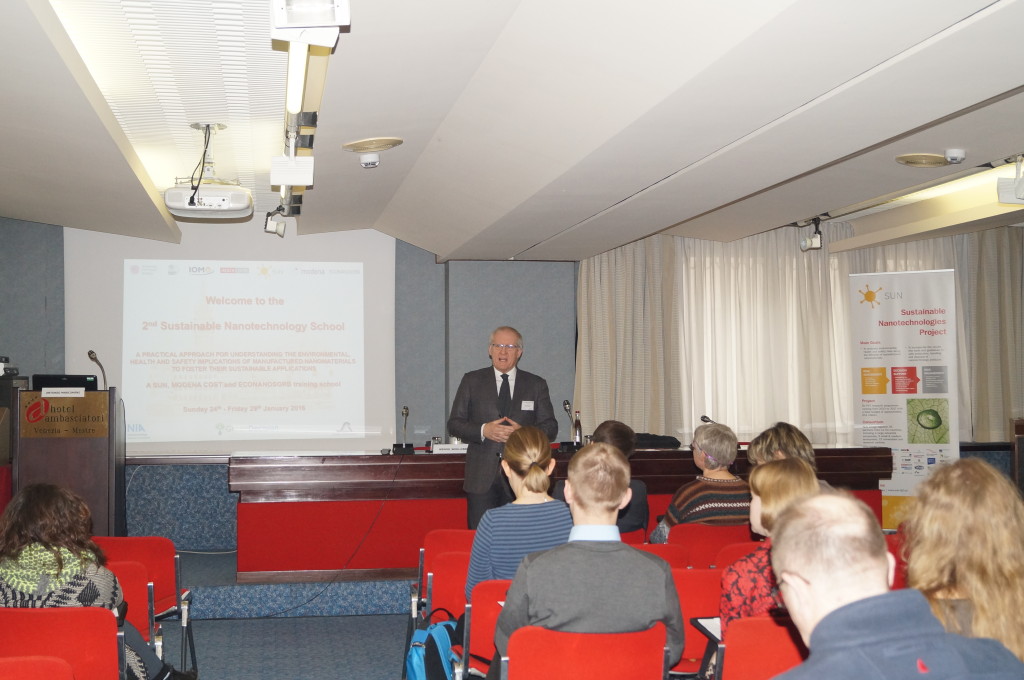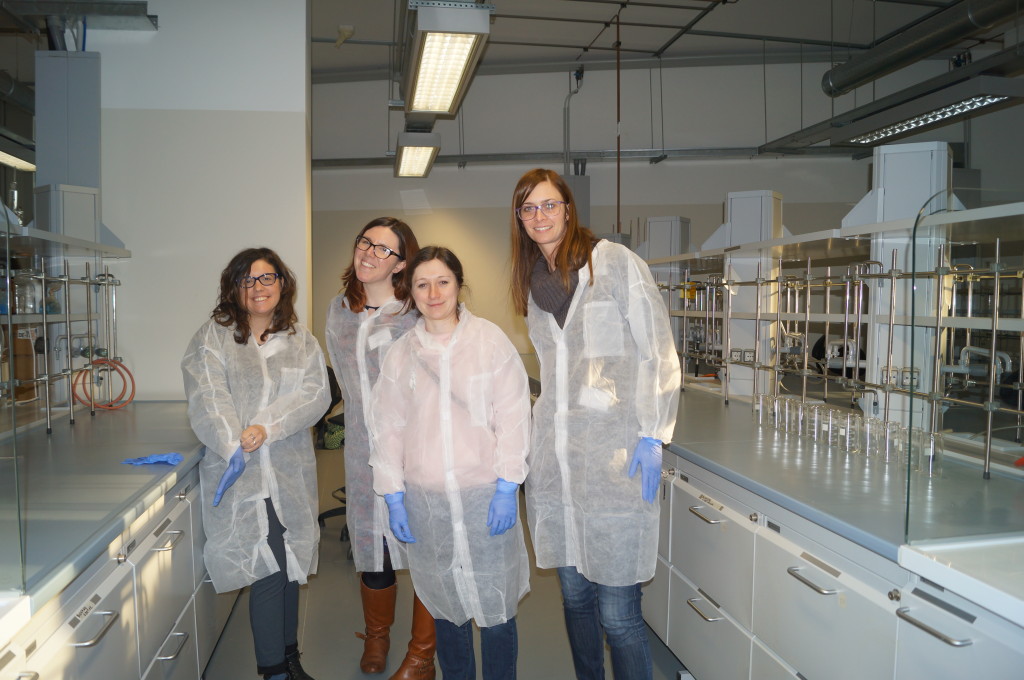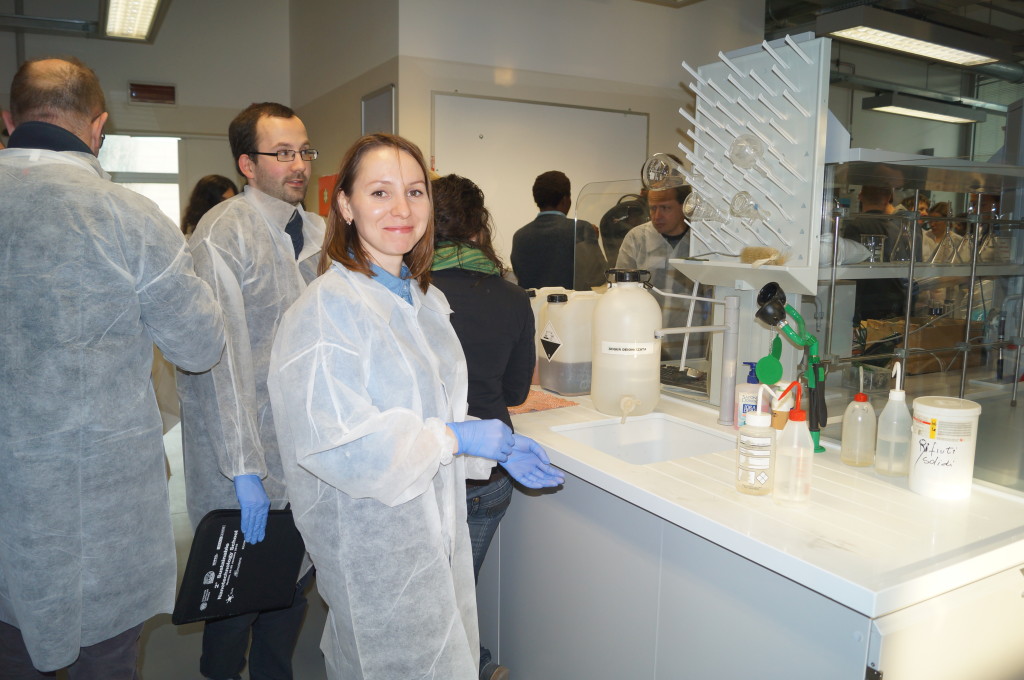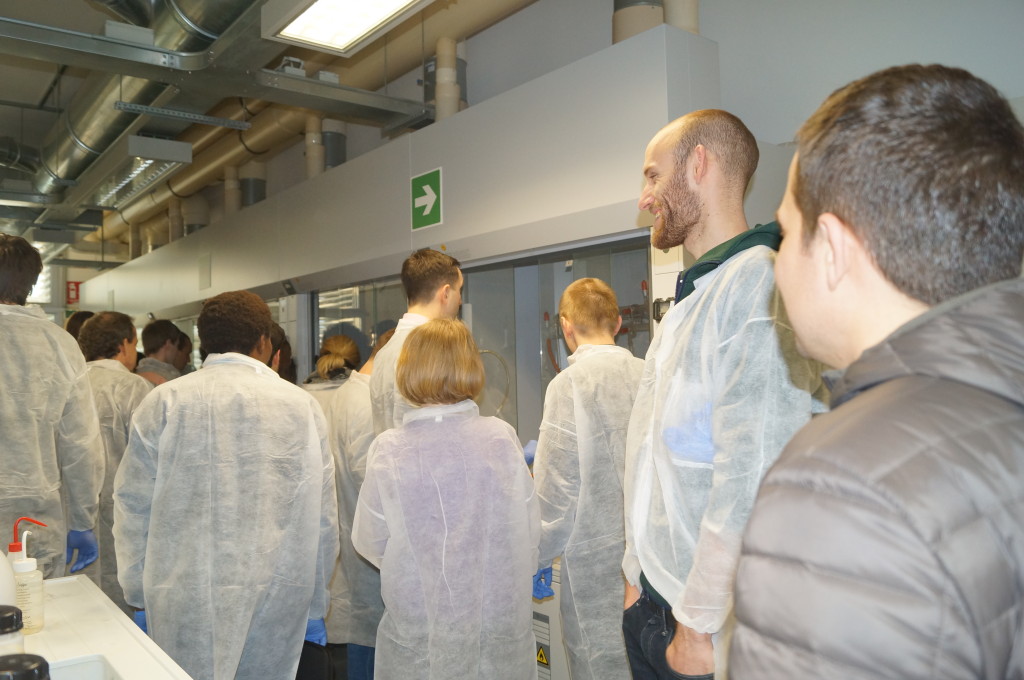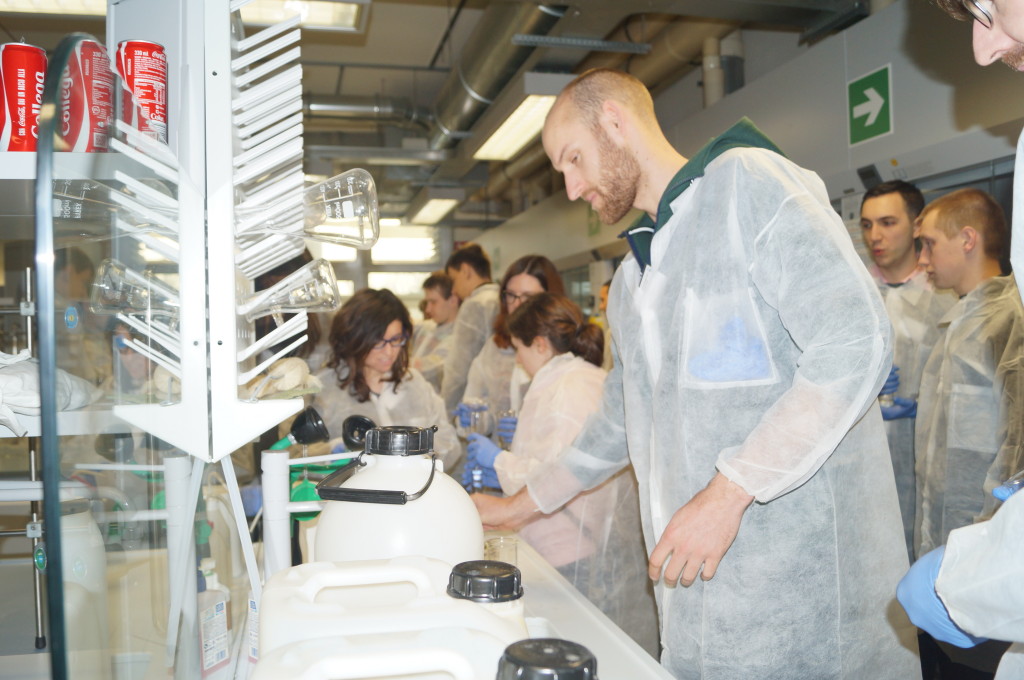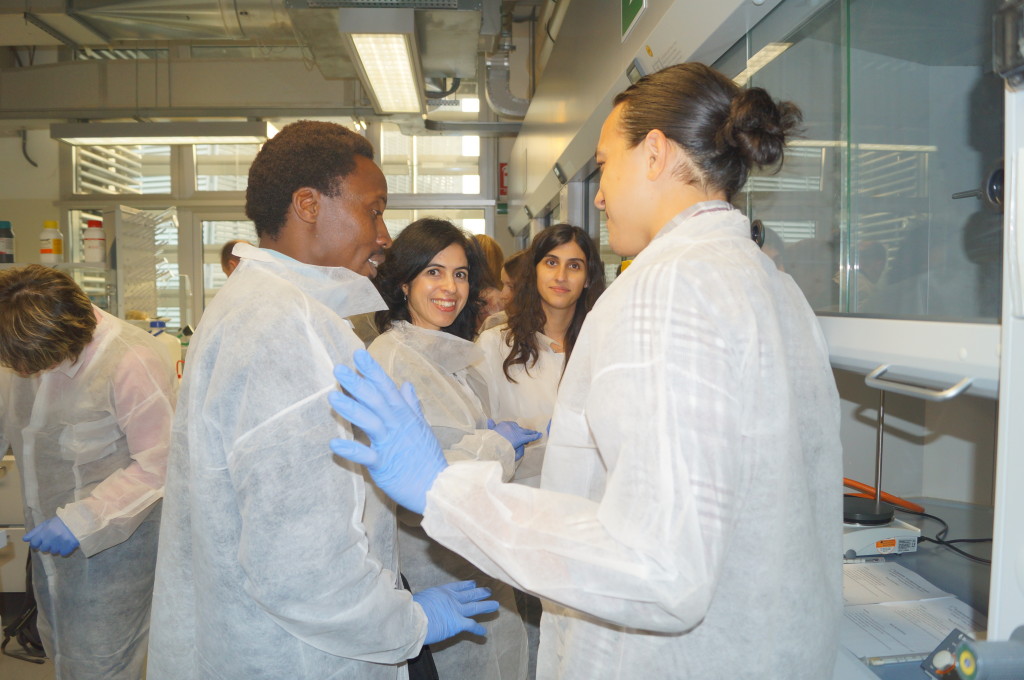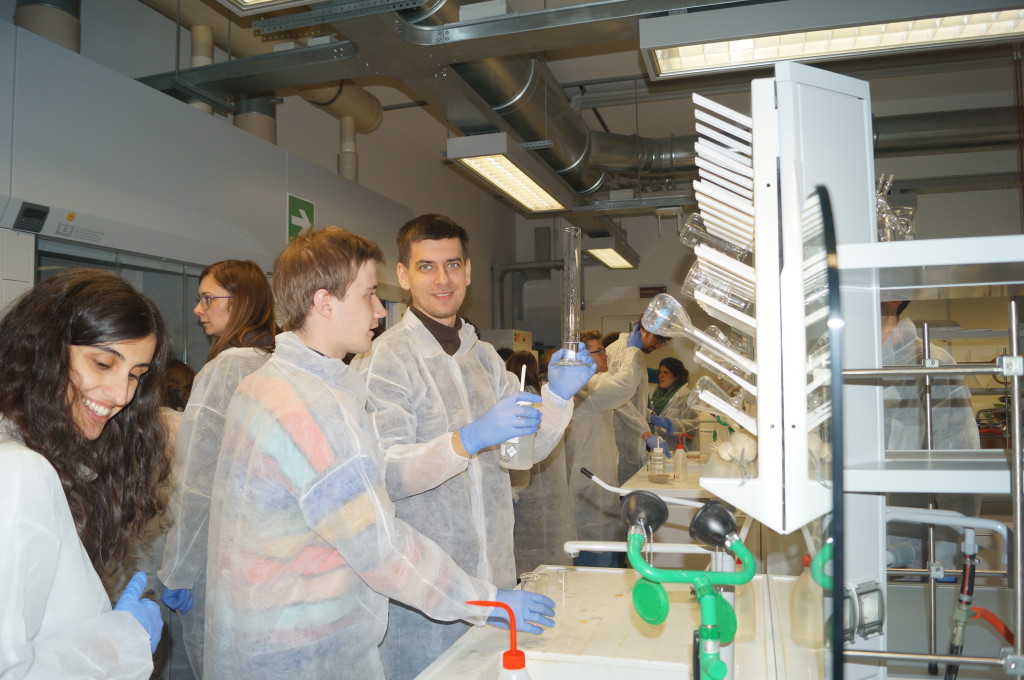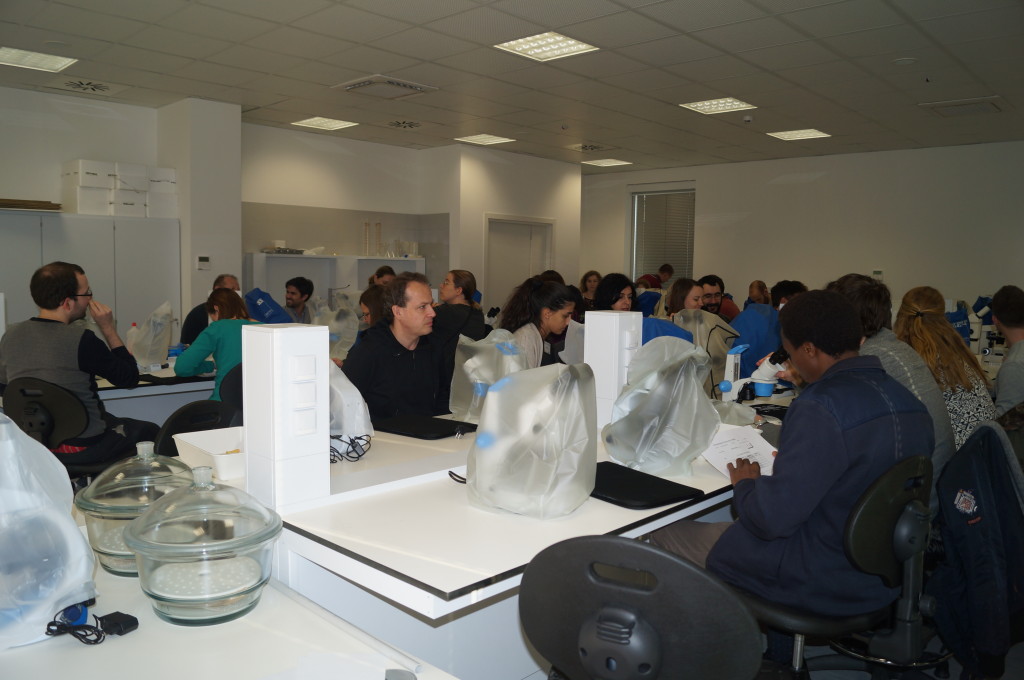Author: Stella Stoycheva
2nd Sustainable Nanotechnology School gallery
“The SUN approach” has been accepted for publication in Environmental Science & Technology
“Meeting the needs for aged and released nanomaterials required for further testing – the SUN approach” is the successful outcome of numerous discussions and ideas among many SUN partners. The manuscript has been just accepted for publication in Environmental Science & Technology Journal.
You can find here the full publication: http://pubs.acs.org/doi/abs/10.1021/acs.est.5b04472.
SUN hosts successfully the 3rd WG7 Dissemination Training Subgroup meeting
Please register your interest to participate by joining our mailing list at info@sun-fp7.eu.
Save the date for the 3rd NSC Training Subgroup Teleconference
The 3rd teleconference of the NSC Training Subgroup will take place on Thursday 21 January 2016, 11:00 am CET. 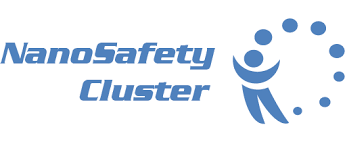
If you wish to join and haven’t received login details please send a request to info@sun-fp7.eu.
The aim of the NSC Training Subgroup is to align the training agendas of the NSC projects in order to ensure high level of skills and consistency within the projects, transfer the generated knowledge to external stakeholders and enhance the training offerings through collaboration and sharing of experience.
Summary Report on 2nd SUN Stakeholder workshop
The report on the 2nd SUN Stakeholder workshop, held on 7 October, 2015 in Venice is now published
The current understanding of the environmental and health risks of manufactured nanomaterials (MN) is still limited, which may result in stagnation of nanotechnology innovation. The EU FP7 Sustainable Nanotechnologies (SUN) project is based on the idea that this knowledge can nevertheless guide nanomanufacturing to avoid liabilities if risk analysis is complemented by a sound socioeconomic analysis in an integrated approach addressing the complete product lifecycle. This is the main rationale behind developing the SUN user-friendly, software-based Decision Support System (SUNDS) for managing the environmental, economic and social impacts of nanotechnologies.
Based on previous rounds of stakeholders’ interviews and a workshop, we have built a conceptual decision framework and methodology and started implementing them into the SUNDS software system. This workshop presented the beta prototype of SUNDS to the intended end users: representatives of industry, regulatory and insurance sectors, in order to collect their feedbacks for further improvements towards the implementation of the final version of the software by March 2017.
You can download the full report here.
SUN hosts successfully the 2nd WG7 Dissemination Training Subgroup meeting
Save the date for the 2nd NSC Training Subgroup Teleconference
 The next teleconference of the NSC Training Subgroup will take place on Wednesday 18 November 2015, 10:00 am CET.
The next teleconference of the NSC Training Subgroup will take place on Wednesday 18 November 2015, 10:00 am CET.
If you wish to join and haven’t received login details please send a request to info@sun-fp7.eu.
The aim of the newly created NSC Training Subgroup is to align the training agendas of the NSC projects in order to ensure high level of skills and consistency within the projects, transfer the generated knowledge to external stakeholders and enhance the training offerings through collaboration and sharing of experience.
Save the date for workshop “Lifecycle impacts of Copper nanomaterials released from timber preserving impregnations”
The international workshop “Lifecycle impacts of Copper nanomaterials released from timber preserving impregnations” organized by the EU FP7 SUN and ECONANOSORB projects aims at meeting experts from Europe, Russia and USA to discuss the results of both the projects on the topics of release, fate, exposure, effects, lifecycle impacts and health risks of the Cu nanomaterials, covering both experimental and modeling approaches.
Save the date 22th January 2016 on your calendar!
For more information please visit: http://www.sun-fp7.eu/events/upcoming-events/workshop-lifecycle-impacts-of-copper-nanomaterials-released-from-timber-preserving-impregnations/
Successful SUN second annual meeting
 Results from SUN 2nd annual meeting show great advancement of the project
Results from SUN 2nd annual meeting show great advancement of the project
During their second annual meeting, held in Venice, Italy on 8-9 October 2015, SUN project partners presented the results obtained during the second 12 months of the SUN – Sustainable Nanotechnologies Project.
SUN is a three and a half year EU project, running from 2013 to 2017, with a budget of about €14 million. Its main goal is to evaluate the risks along the supply chain of engineered nanomaterials and incorporate the results into tools and guidelines for sustainable manufacturing.
The SUN project is based on the idea that the still limited knowledge about environmental and health risks of manufactured nanomaterials (MN) can nevertheless guide nanomanufacturing to avoid liabilities if risk analysis is complemented by a sound socioeconomic analysis in an integrated approach addressing the complete product lifecycle. This is the main rationale behind developing the SUN user-friendly, software-based Decision Support System (SUNDS) for managing the environmental, economic and social impacts of nanotechnologies.
The main highlight of the 2nd annual meeting was the release of SUNDS beta prototype. The SUNDS beta prototype has been presented and discussed during the second SUN stakeholders workshop held on 7 October in Venice, Italy aimed at representatives from industry, regulatory and insurance sectors. The design and implementation of the SUNDS is proceeding according to the work plan. The outlook for the upcoming months include refining the methodology, modules implementation and testing the decision support system on selected case studies (i.e. copper oxide and organic pigments).
“The SUN Decision Support System represents a blend of most advanced models for human health and ecological risk assessment and for the first time compares the risks from nanotechnologies to their economic and social benefits in order to effectively support risk management decision making by the European nanotechnology industry” explained Dr. Danail Hristozov, the Principal Investigator of SUN.
About SUN
SUN – Sustainable Nanotechnologies Project – an EU FP7 project, aiming to develop strategies for safe production, handling and disposal covering the complete lifecycle of nano-enabled products and to include the results into practical guidelines for industries.
